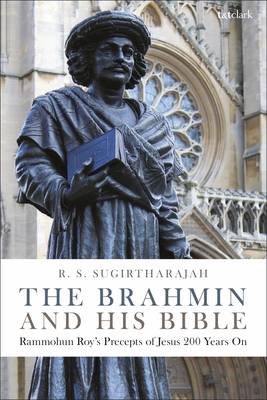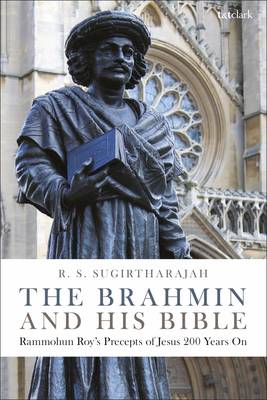
- Retrait gratuit dans votre magasin Club
- 7.000.000 titres dans notre catalogue
- Payer en toute sécurité
- Toujours un magasin près de chez vous
- Retrait gratuit dans votre magasin Club
- 7.000.0000 titres dans notre catalogue
- Payer en toute sécurité
- Toujours un magasin près de chez vous
The Brahmin and his Bible
Rammohun Roy's Precepts of Jesus 200 Years On
R S Sugirtharajah
Livre broché | Anglais
72,95 €
+ 145 points
Description
On the bicentenary of the publication of Raja Rammohun Roy's Precepts of Jesus, R. S. Sugirtharajah situates Roy's compilation of the moral teachings of Jesus in its social, cultural and political context and analyses the hermeneutical issues it generated. In doing so, he documents the often acrimonious exegetical exchanges between Roy and the missionaries over the standing and status of the Bible; their often differing hermeneutical suppositions and strategies; their contradictory consturals of Jesus; and disputes about translations. Sugirtharajah addresses issues such as the place of the Precepts among earlier Gospel Harmonies, Roy's use of the Improved Version, a highly contentious Unitarian Bible, and his motives for translating his own Hindu texts. Sugirtharajah also demonstrates how Roy's work was a precursor to de-mythologization which the West took up later, and how Roy's identification of Jesus as an Asiatic, and his idea of a moral union between Father and Son, were routinely reused by later Indian writers. An additional feature is a critical look at Thomas Jefferson's The Life and Morals of Jesus of Nazareth, which appeared in the same year and which had a similar interpretative aim and aspiration. This volume also includes Roy's Precepts in full.
There have been popular perceptions of Roy as someone who strongly disapproved of various Christian doctrines and was highly rationalistic in his outlook. Sugirtharajah demonstrates that Roy was much more complex in his writings. His initial rationalistic energy and passion, displayed in his Precepts, gave way to something much more intuitively and emotionally based which, ironically, did not disturb the foundations of Christianity but made them stronger and safer for Christians.
Sugirtharajah brings to the fore a forgotten but significant work which raised important issues for biblical studies and the power relations between colonized and colonizer over the control of texts and interpretation. He draws lessons from this 19th-century colonial religious controversy for a postcolonial world where religious texts are manipulated to provoke religious hatred and violence.
There have been popular perceptions of Roy as someone who strongly disapproved of various Christian doctrines and was highly rationalistic in his outlook. Sugirtharajah demonstrates that Roy was much more complex in his writings. His initial rationalistic energy and passion, displayed in his Precepts, gave way to something much more intuitively and emotionally based which, ironically, did not disturb the foundations of Christianity but made them stronger and safer for Christians.
Sugirtharajah brings to the fore a forgotten but significant work which raised important issues for biblical studies and the power relations between colonized and colonizer over the control of texts and interpretation. He draws lessons from this 19th-century colonial religious controversy for a postcolonial world where religious texts are manipulated to provoke religious hatred and violence.
Spécifications
Parties prenantes
- Auteur(s) :
- Editeur:
Contenu
- Nombre de pages :
- 160
- Langue:
- Anglais
Caractéristiques
- EAN:
- 9780567701992
- Date de parution :
- 09-09-21
- Format:
- Livre broché
- Format numérique:
- Trade paperback (VS)
- Dimensions :
- 156 mm x 234 mm
- Poids :
- 231 g

Les avis
Nous publions uniquement les avis qui respectent les conditions requises. Consultez nos conditions pour les avis.






